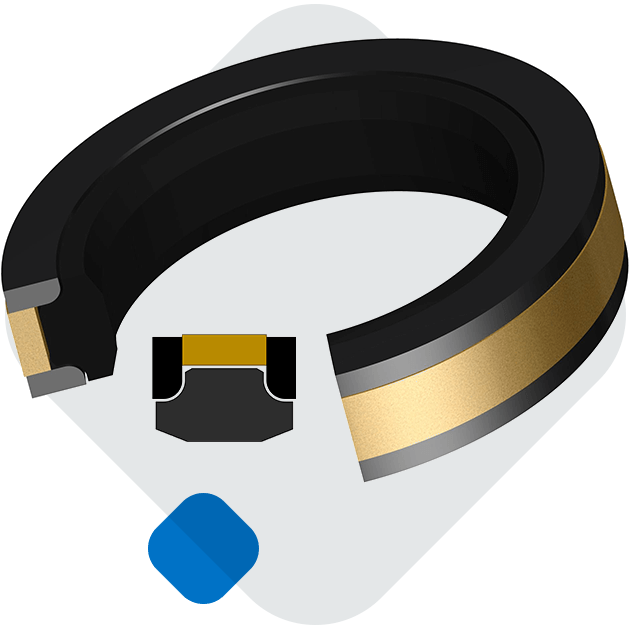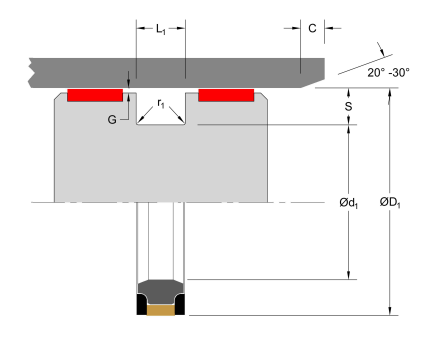Characteristics and performance
The Hallite Capped T maximizes performance by employing thicker anti-extrusion rings that protect the seal face and energizer from damaging high-pressure shocks well beyond what standard industry designs are capable of. This design, along with our exclusive high-performance Armorlene® HLX material and high-grade elastomers are what make Hallite’s CT a high-performing seal.
The CT consists of a filled PTFE cap, high-grade elastomeric energizer, and two precision anti-extrusion rings. Hallite’s CT is suitable for a wide range of PTFE materials, the most common being bronze, moly-glass, or carbon filled. MoS2 filled PA AE rings are the most commonly used for fluid power service, though glass filled, PA, virgin PEEK, and other high-performance materials are also available to suit your needs. The most commonly used energizer is the NBR Shore 80A. However, your CT seal can be configured using several different elastomer compounds including HNBR, low temp. NBR, and FKM.
Product details
Max pressure *
Temp range
Max speed
* Max pressure stated is dependant on the material variant selected. Please consult the datasheet for further information.
- Recomended
- Possible
- Not suitable
* For fluid types marked as possible, please call our team of experts on +44 208 941 2244 to talk through your requirements and determine if this seal is the most suitable for your needs.
| Dynamic application | Static application | |
|---|---|---|
| Fluids based on mineral oil | ||
| Any | Recommended | Possible |
| Waterbased fluids | ||
| HFA (5/95) | Not suitable | Not suitable |
| HFB (60/40 invert emulsion) | Possible | Possible |
| HFC (water glycol) | Possible | Possible |
| Water | Not suitable | Not suitable |
| Other fluid types | ||
| Air/Nitrogen | Not suitable | Not suitable |
| HFD (Phosphate ester ARYL Type) | Not suitable | Not suitable |
| Synthetic esters (HEES, HFDU) | Recommended | Possible |













